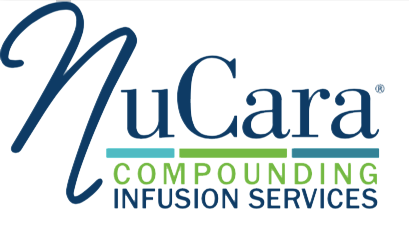FAQ
What is compounding?
Compounding pharmacy is a special kind of pharmacy that specializes in the preparation of medications by mixing raw ingredients. In the early 20th century leading up to the 1940s, most of the medications were literally made by pharmacists preparing the medications that were patient specific. Today, the number of compounded prescriptions represents less than 2% of all prescription drugs.
The art of compounding has evolved significantly, and especially within the last 10 years. Now, new technology is available that allows a pharmacist to prepare custom medications with complete confidence in quality control. Certification standards were recently introduced by several non-profit organizations; more companies are offering quality control testing of compounded products; more classes are available to introduce new compounding techniques; and most importantly, several leading organizations are garnering evidence-based and health outcome data to demonstrate safety and efficacy of various drug preparations.
How is compounding different than drug manufacturing?
Traditional compounding is the preparation of a medication to meet the prescriber’s exact specifications and to be dispensed directly to the patient, pursuant to a valid prescription for that patient. Manufacturing is the mass production of drug products that have been approved by the Food and Drug Administration (FDA). These products are sold to pharmacies, health care practitioners, or others who are authorized under state and federal law to resell them.
What suppliers sell ingredients to compounding pharmacies? How are these suppliers regulated?
Just like big pharmaceutical manufacturing companies, compounding pharmacies get their ingredients for medications from suppliers that are registered and inspected by the Food and Drug Administration.
The FDA has stated that compounded prescriptions are both ethical and legal as long as they are prescribed by a licensed practitioner for a specific patient and compounded by a licensed pharmacy.
Will my insurance cover compounded medications?
Compounded prescriptions are sometimes covered by insurance, and are plan specific. While you may be paying the pharmacy directly for a compounded prescription, some insurance plans may cover the final cost. We will provide a claim reimbursement form with your medication and you may call your insurance provider to determine eligibility for compounded medication coverage.
My doctor is sending in a prescription to your pharmacy, what should I do?
As soon as we receive your prescription, you will receive a call from us. We will obtain some basic information and discuss payment/shipping options with you. If you have not heard from us, please feel free to call us to review your medication needs.
How long will it take for my prescription to be filled?
The time to make and fill each individual prescription varies. We recommend you get the prescription to us in advance so that we can ensure your medicine is ready as soon as possible.
